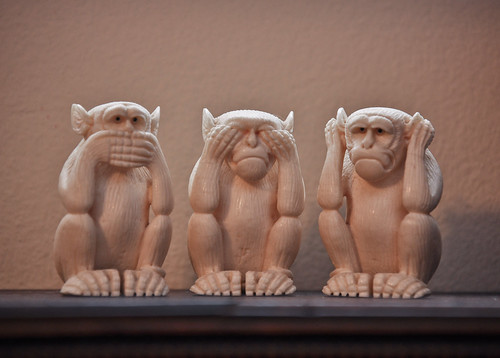40: Do you believe in evil? #LifeWideLearning16 @MrChase
— Ben Wilkoff (@bhwilkoff) February 9, 2016
Evil exists. I can’t speak to the broad evil outlined here, but the narrow definition of evil is real. In attempting to explain, I’m also attempting to avoid the supernatural bird’s nest of thinking that doesn’t serve the conversation.
Evil exists because we need the word. People take actions in the world toward which I would point and say, “That is evil.”
The difference, the frustration come in our willingness to too easily ascribe evil as the cause of most of those actions with which we disagree.
Suggesting that and expecting anyone in America can rise up from poverty given hard work and a firm grasp on their bootstraps is wrong. It is not evil.
Fostering hatred of the poor, the different, the other and advocating they be treated as less than and denied human and civil rights is evil.
Actions which result in the unintended oppression of others, the pain and suffering of your fellow humans are wrong. They deserve fitting consequences for the actor, and they are still wrong, not evil.
Actions made with malice and the intent of silencing, oppressing, and breaking the spirit of others are evil. Even if those actions fail to result in their intended effects, that does not make them any less evil.
Evil does not have to be effective to be evil.
We all carry some piece of it with us. I’ve always imagined that the horror I experience when I see man’s grossest inhumanity toward man is partially driven by my fear of such acts being perpetrated on me or a community to which I belong. Somewhere, splintered off in the dark part of my psyche, my horror is also driven by the possibility that I too could perpetrate such evil.
That is humanity, living with and recognizing the evil we could do to one another and actively working against it – choosing compassion, good, and empathy in both the big and little moments.
I do not know if I believe people are inherently good or inherently evil. It makes more sense, instead, to believe that each person holds within them the potential for unimaginable good or unimaginable evil and to stand back in awe of how good the vast majority of us actively choose to be each day.
This post is part of a daily conversation between Ben Wilkoff and me. Each day Ben and I post a question to each other and then respond to one another. You can follow the questions and respond via Twitter at #LifeWideLearning16.
